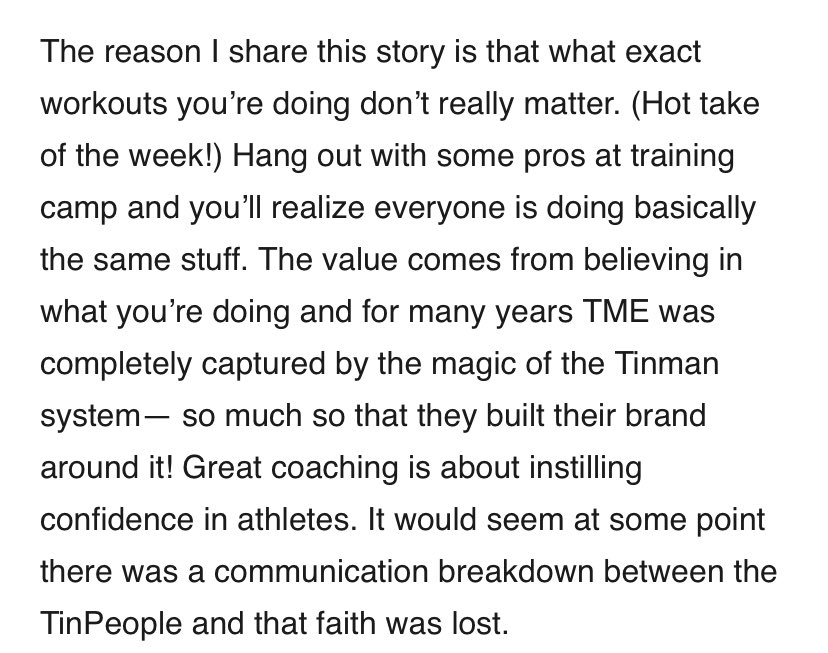
"The workouts you are doing don't really matter." @TheRealMerb
A true statement from The Final Lap Newsletter.
But how can this be true? Do the workouts really not matter? Let's explore...
A true statement from The Final Lap Newsletter.
But how can this be true? Do the workouts really not matter? Let's explore...

.@TheRealMerb isn't saying that workouts don't matter at all. His point is that we're all doing about the same thing.
The science and art of coaching have improved to such a degree that there are no secrets.
The science and art of coaching have improved to such a degree that there are no secrets.
This isn't the 1950s where some were doing intervals every day and no tempos and others were running tons of miles. In the early days of training, they were utilizing different ingredients. Not everyone used flour, eggs, etc.
Now, every coach/athlete uses the same ingredients.
Now, every coach/athlete uses the same ingredients.
There is variation, for sure. Some use a bit more flour, others utilize more butter. Some put salt in at the beginning, others at the very end. Some prefer vanilla, others strawberry.
But we're all baking a cake with access to the same ingredients.
But we're all baking a cake with access to the same ingredients.
The point isn't to discount the workouts or what coaches do. It's to say...
There are no secrets. There are no magic workouts. If you think you found that magic formula, you're wrong.
The magic comes in the minor adjustments, tweaks for the individual sitting in front of you.
There are no secrets. There are no magic workouts. If you think you found that magic formula, you're wrong.
The magic comes in the minor adjustments, tweaks for the individual sitting in front of you.
AND getting an athlete to buy into whatever it is you're doing.
If someone tells you they have the secret formula, they are either lying or delusional. Often, coaches will portray they have the secret because it gets buy-in.
If someone tells you they have the secret formula, they are either lying or delusional. Often, coaches will portray they have the secret because it gets buy-in.
If you convince athletes you have the key, they buy in AND are dependent on you. It makes the coach's job easier...but it's also really messed up.
And often blows up in the long run.
And often blows up in the long run.
And that's where I wish coaches would be more transparent. We're dabbling in the margins.
If a coach tells you they have the secret sauce, run away.
If a coach tells you they have the secret sauce, run away.
So it's not that workouts don't matter at all. It's just that we're all working with the same ingredients, and every single coach knows exactly what those ingredients are, and roughly when to utilize them.
• • •
Missing some Tweet in this thread? You can try to
force a refresh


